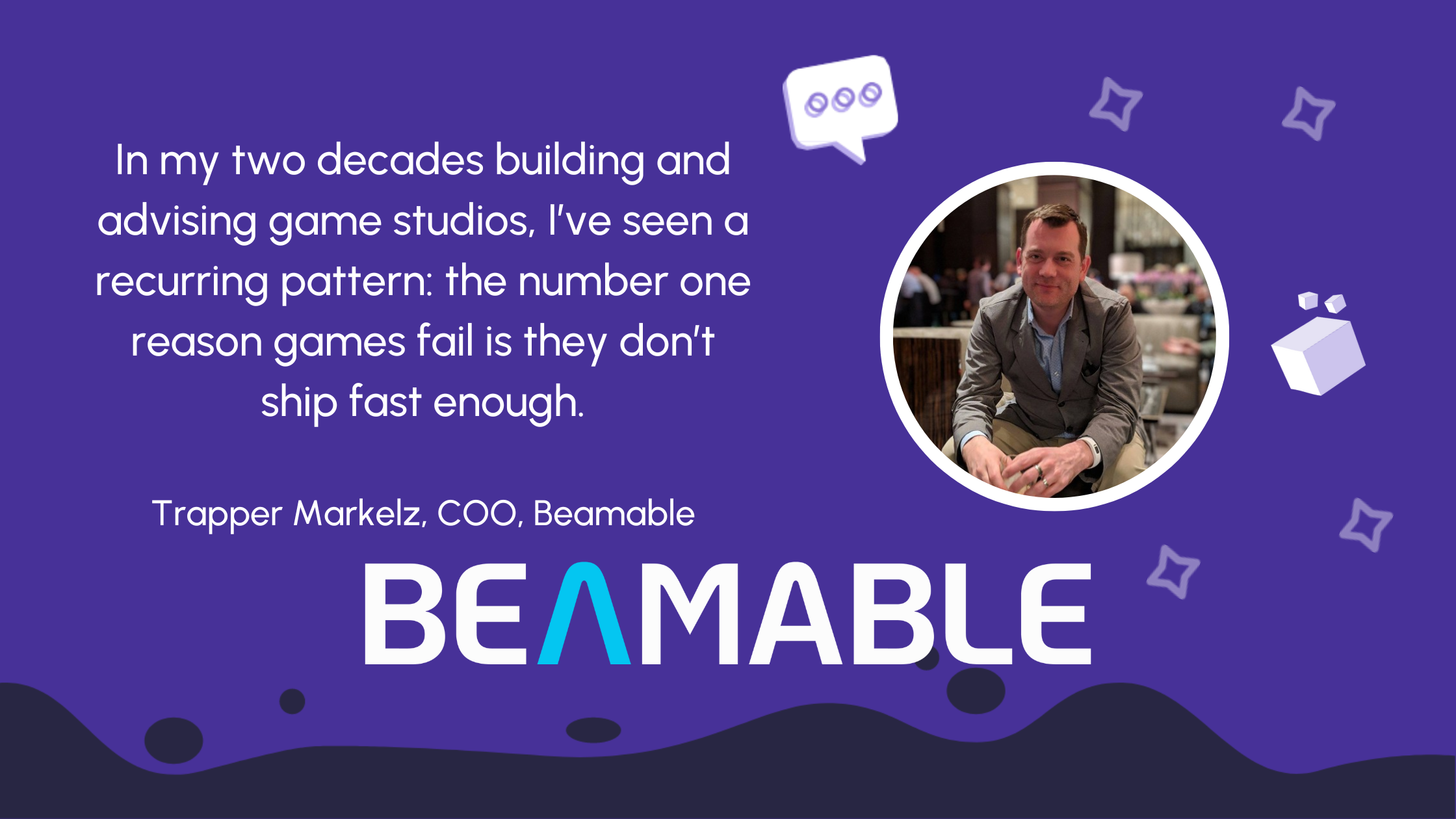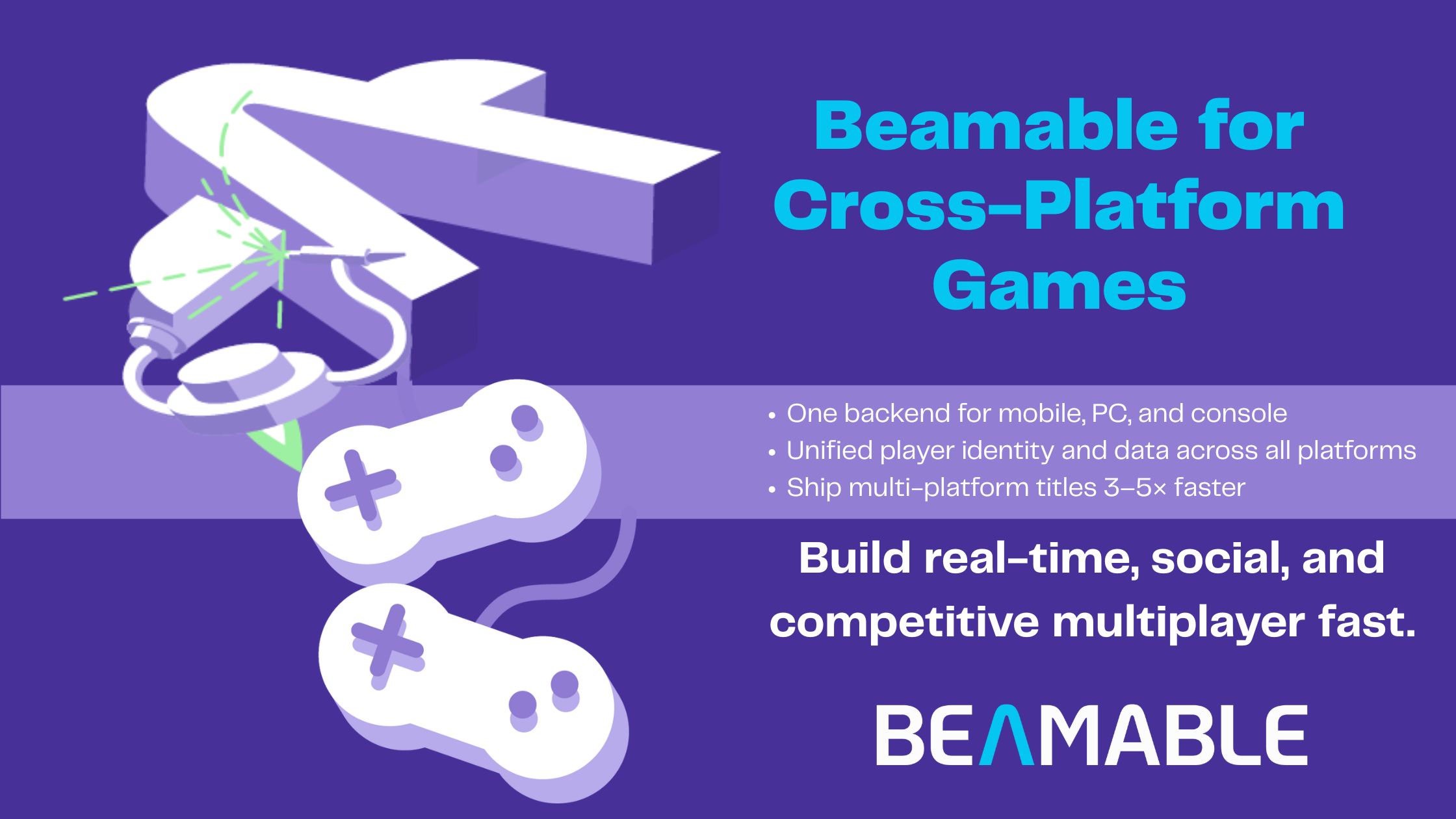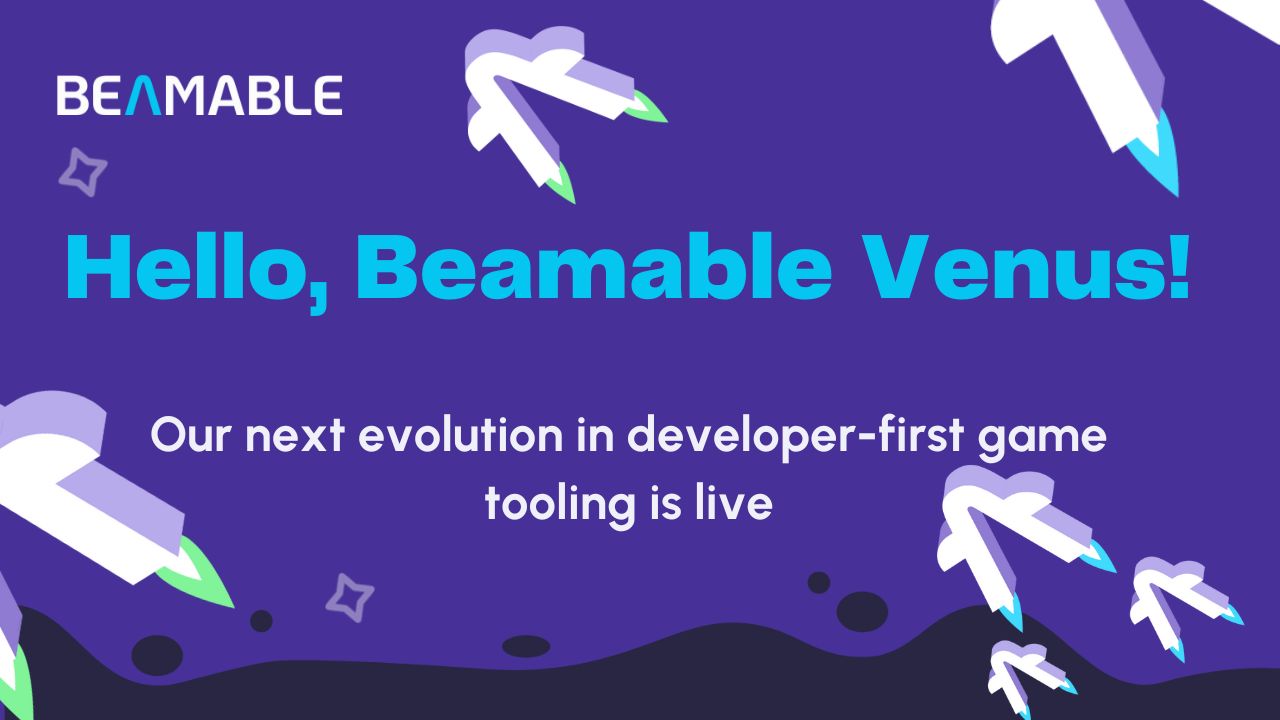Why Most Games Fail Before They Even Launch

Why Most Games Fail Before They Even Launch
Why do so many games fail to ship?
In my two decades building and advising game studios, I’ve seen a recurring pattern: the number one reason games fail is they don’t ship fast enough.
Teams pour months — sometimes years — into backend systems like accounts, servers, commerce, leaderboards, and live ops. These systems are vital, but they don’t make the game itself more fun. Every week spent on infrastructure is time not spent polishing gameplay, building community, or testing with real players.
Too often, by the time the game is ready to launch, the budget is gone, the market has moved on, or worse — the project never ships at all. A recent GDC survey showed that nearly half of developers canceled a project before launch due to resource constraints and delays. That aligns with what I’ve seen firsthand across the industry.
Why is speed-to-market more important than ever?
Today’s market is unforgiving. Players have more choice, expectations are higher, and cultural trends come and go in months, not years.
Here’s what I tell studios:
- Delays cost money. A mid-sized team can burn $50K–100K a month just keeping development going (Unity Gaming Report).
- Timing is everything. Miss a trend window, and your game may launch into irrelevance.
- Real learning only happens with players. You can’t iterate in theory — you have to ship and get real feedback.
In this environment, speed isn’t just about efficiency — it’s survival.
How Beamable helps studios ship faster
This is exactly why we built Beamable.
Beamable provides ready-to-use infrastructure for the core systems every game needs — directly inside Unity and Unreal. That lets studios save six to twelve months of backend work, freeing teams to focus on what makes their game great.
The impact is clear:
- Lower costs by cutting backend engineering overhead.
- Faster time to market so you can launch while the opportunity is hot.
- More chances to adapt by learning from players early and often.
Today, more than 4,000 developers at 200 studios use Beamable. We already power 90+ live games with 100 more in development — from indie creators to AAA publishers.
What happens if you don’t?
I’ve seen the other side of the coin too many times:
- Studios run out of money before they launch.
- They miss their moment and release into a crowded market that has moved on.
- They ship late with no runway left to support live operations.
And the numbers back it up. Industry analysts at GameDiscoverCo estimate that 70% of games fail to turn a profit. The ones that succeed don’t wait until everything is perfect — they ship, they learn, and they improve.
Final thought
As a COO, I think about risk constantly. The riskiest path in game development is spending years on infrastructure before you ever test your game in the market.
The studios that win are the ones that get into players’ hands faster. That’s the opportunity Beamable was built to unlock.
👉 Learn how Beamable helps studios ship faster
FAQ: Shipping Games Faster
Q: What is the number one reason games fail?
A: The top reason games fail is delays. Studios spend months or years on backend systems like servers, accounts, and commerce — systems that don’t improve gameplay but drain budgets.
Q: How much development time can Beamable save?
A: On average, Beamable saves studios 6–12 months of backend work by providing ready-to-use infrastructure directly inside Unity and Unreal.
Q: Why does speed-to-market matter in gaming?
A: Launching fast helps studios capture trend windows, reduce costs, and gather player feedback earlier. According to Unity, delays can cost a mid-sized studio $50K–100K per month in overhead.
Q: Who is using Beamable today?
A: Beamable is trusted by more than 4,000 developers at 200 studios, powering 90+ live games with 100 more in development, from indie teams to AAA publishers.
Q: What happens if studios delay their launch?
A: Delays often lead to canceled projects, missed market opportunities, or lack of budget to support live ops. Industry analysts estimate 70% of games fail to turn a profit.




